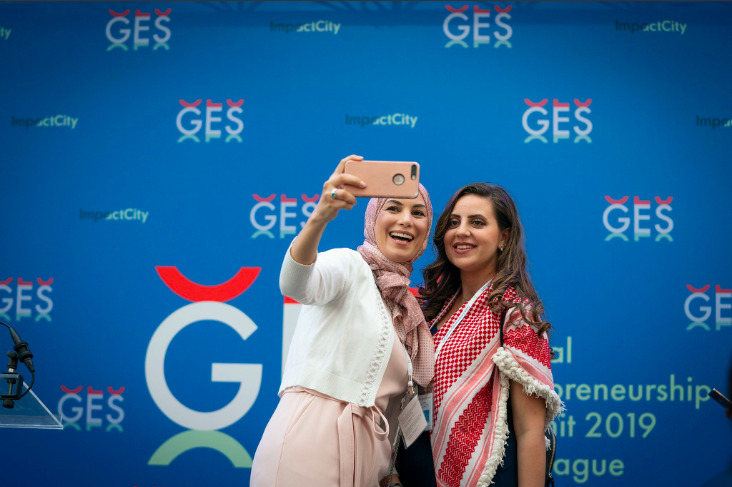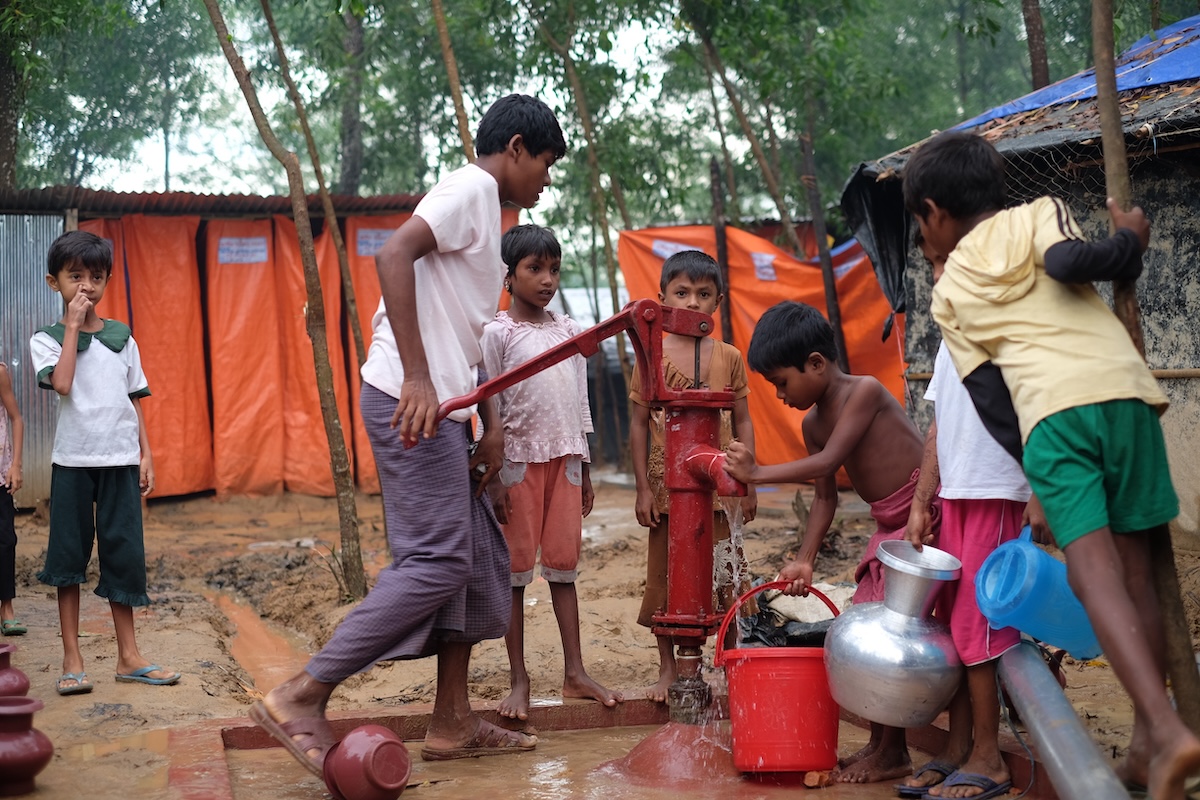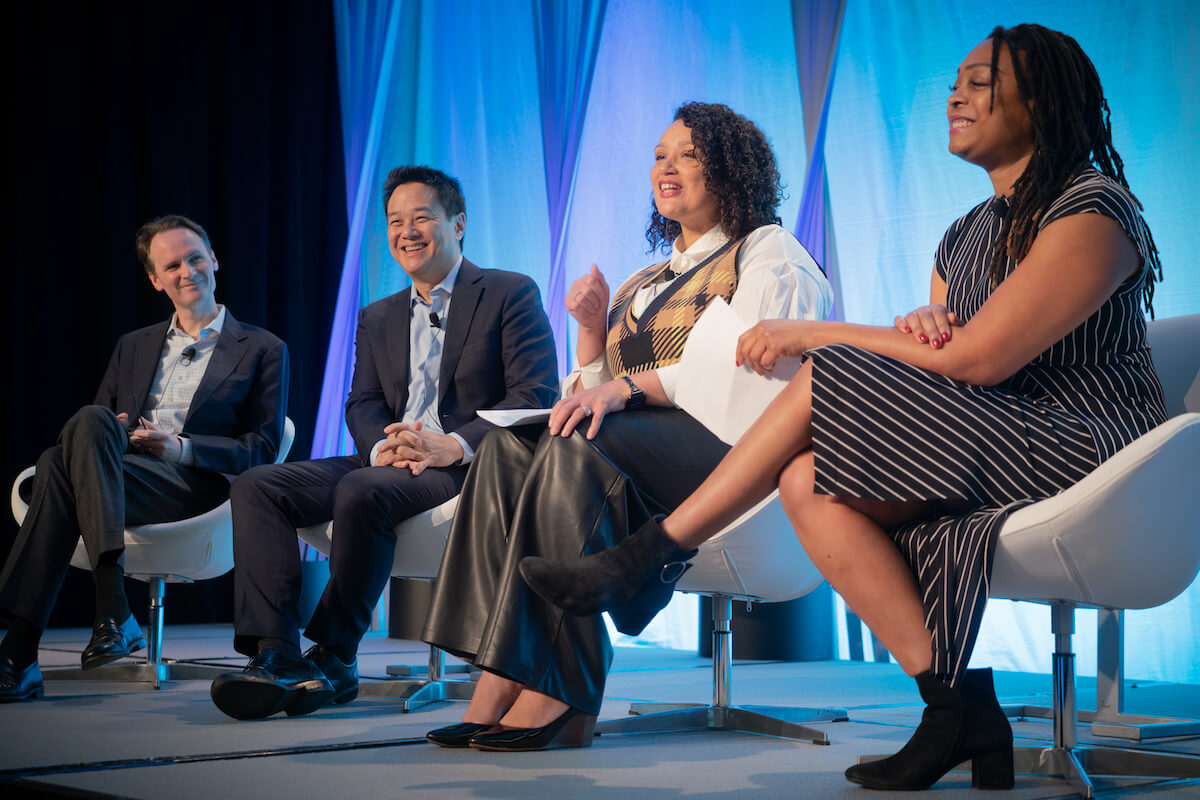ImpactAlpha, June 6 – The tagline was The Future Now for the 9th annual Global Entrepreneurship Summit. It might have been The Future is Female. ImpactAlpha is in The Hague for the joint initiative of the U.S. and the Netherlands. If previous summits aimed to ignite global entrepreneurship, this year was almost universally about entrepreneurship as a catalyst for impact. Women were front and center as both leaders and beneficiaries. From the notebook:
- Tech for good. Hardware is hard, right? Women showcasing hardware for good included engineers, scientists, and computer experts like Katie Taylor of Pune-based Khethworks, which makes solar-powered water pumps for smallholder farmers, and Zoe Welz of Colorado-based Drovr, which makes smart fences for livestock. Geta Rasciuc, CEO of Dutch neonatal device company Babymoon is building a smart kangaroo care sling with “embroidered circuitry” to monitor a baby’s vital signs.
- Culture of change. Sahel Consulting’s Ndidi Nwuneli called for greater transparency in the food supply chain to benefit farmers and agribusiness owners in her native Nigeria and across Africa. Abeer Ali Al-Mukhaini shared her experience developing a tech training program for young women in Oman. Christina Moreno, a high school dropout and teen mother turned international lawyer, supports refugee women overcoming poverty and stigma through her job placement startup She Matters. Eriko Suzuki with venture capital firm Fresco shared her secret for spotting real changemakers. “There’s a saying ‘Culture eats strategy for breakfast,” she said. “You can really tell if you spend time with people where their values are.”
- The GIST of it. Fifteen of 25 presenters at the U.S. State Department’s Global Innovation through Science and Technology (GIST) startup pitch competition were women. Christina York’s SpellBound won with its immersive 3D tech to help patients cope with health treatments. Women-led companies were finalists in three of five categories.
- Missing from the agenda. The Hague is a hub for peace, justice and human rights. Discussion of how entrepreneurship can advance these causes was mostly missing from the GES program. Women’s rights are human rights, of course. But the GES could have helped debunk the myth that peace and justice (Sustainable Development Goal No. 16) aren’t investable (see, “Yes, peace, justice and strong civic institutions are investable opportunities”).











